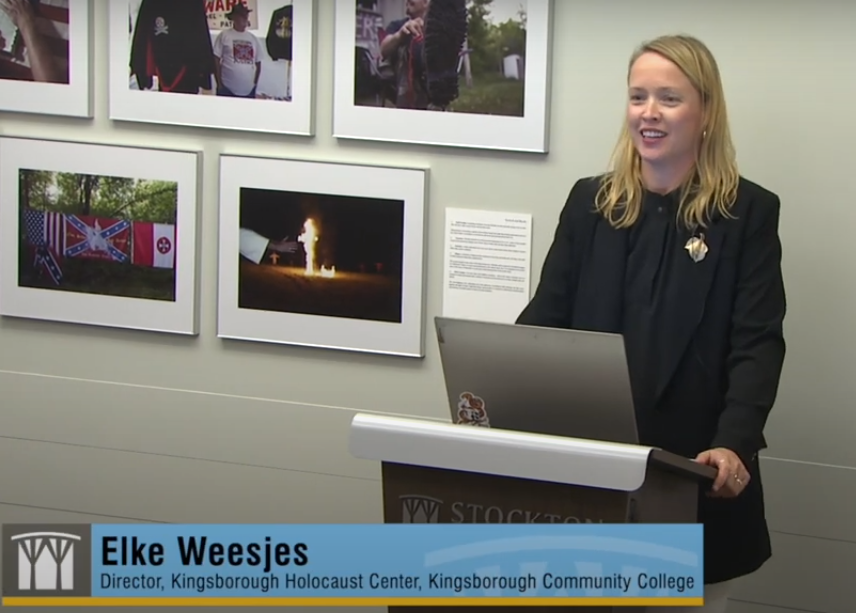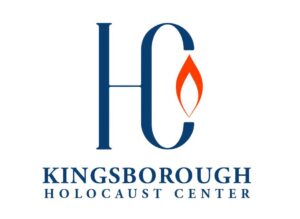This exhibit’s host, creators, and sponsors in no way support or condone the ideologies and actions of white supremacist groups and organizations. We stand with people targeted by these groups – particularly African people across the Diaspora, Jews, Latinos, people of Asian descent, Indigenous people, and asylum seekers and other forcibly displaced people – and present this exhibit as an integral part of the educational struggle for a society committed to equality, truth, and justice.
Curator & Text: Elke Weesjes, PhD
Photographer & Captions: Anthony Karen
Explaining is not excusing; understanding is not forgiving. Christopher R. Browning.
This exhibit introduces visitors to several white supremacist groups in the United States and examines the lives and experiences of ordinary individuals who join (and leave) these groups.
Instead of treating members like a collective, this exhibit looks at them as individuals. It interrogates questions such as: how do these people make sense of the world around them and their place in it? What is it about their lives that seems to coincide with the agenda of racist politics? And how do they pass on their ideology to subsequent generations?
Within and Beyond Exclusionary Communities specifically explores the experiences of women and children as they have received much less attention than male adults in white supremacist groups. This lack of attention to women and children distorts and may cause us to underestimate the destructive potential of these groups. Furthermore, as noted by sociologist Kathleen Blee who has written extensively about women in the racist movement, the exclusive attention to men in the far right has skewed our understanding of the process whereby people become members of organized racist groups.
Much like Blee, who interviewed countless members of white supremacist organizations, photographer Anthony Karen is also known to engage with those whose beliefs are contrary to his own. Karen has more than twenty years of experience photographing far-right extremist groups in the United States. Unlike much of the photography that deals with the far right, Karen tries to avoid clichés and does not rely exclusively on symbolism, shock value, or sensationalism to tell the story. Instead, he captures his subjects as they see themselves and explores their public and private lives. Through his photographs, we can gain an understanding of what motivated these people to become active in white supremacist groups.
This exhibit is part of a project by historian Elke Weesjes, titled Children of the (White Collar) Klan: Growing up in the American Far Right, 1960-1990, which was funded by the Mellon/ACLS Foundation. Based on interviews with twenty children of Ku Klux Klan and White Citizens Council members and sympathizers, auto/biographies, archival materials, and existing historiography, this project explores what it was like to grow up in the white supremacist movement in the American South in the latter part of the twentieth century. It investigates the private, the public, and the political spheres. Relying on the perspectives of their children, this project examines white supremacists’ interpretations of their movement’s racist and antisemitic values and ideology and investigates how parents transmitted them from one generation to the next.

Watch the opening talk here:
Learning objectives:
Through visiting this exhibit students/other interested parties will:
-
Deepen their understanding of some of the white supremacist groups currently active in the United States.
-
Consider the importance of understanding the backgrounds, motivations, and perspectives of those who hold racist and antisemitic views.
-
Recognize that these groups consist of families as well as individuals (multigenerational membership) and explore how this changes our understanding of these groups.
-
Explore how white supremacists transmit their racial and political ideologies to their children and members of their community.
Explore the exhibit:
3. Children and the Intergenerational Transmission of Racial Beliefs
“Within and Beyond Exclusionary Communities: White Supremacy and Racism in the United States” will be on display at Stockton University through the fall semester and is free and open to the public. Individual and group visits require registration by calling 609-652-4699.
An associated workshop for 7th – 12th grade teachers on the exhibit will be held at the Sam Azeez Museum of Woodbine Heritage on October 26, 2023 from 3:30 pm – 6:00 pm. Teachers who would like to participate in the workshop need to register ahead of time via email to the following address: [email protected].
Our partners: Master of Arts in Holocaust & Genocide Studies (directed by Raz Segal), the Sara & Sam Schoffer Holocaust Resource Center (directed by Gail Hirsch Rosenthal), the Sam Azeez Museum of Woodbine Heritage (directed by Jane Stark), Stockton’s dual credit programs in Holocaust and Genocide Studies (coordinated by Steven Marcus) and in Africana Studies (coordinated by Toyo Aboderin), and Coordinator of Exhibits at the Stockton Art Gallery, Ryann Casey.



